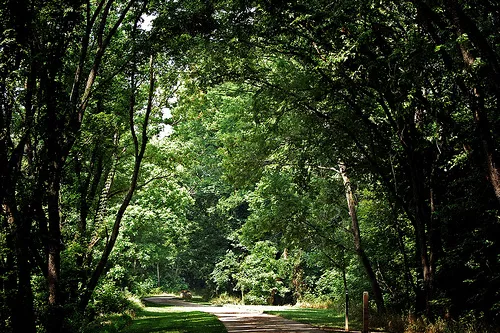Wednesday, October 16, 2013
News / Opinion You, too, can help map Charlotte's future! (And more arguments for paying attention to local issues.)
Posted By Mary Newsom on Wed, Oct 16, 2013 at 10:07 AM
A few weeks before the 2012 election I was chatting up a guy working at an Uptown pizza joint.
"You gonna vote?" I asked. "Sure," he said. "I'm for Obama."
"You ever vote for any other offices on the ballot? Congress? State legislators?" I asked.
"Nah, I don't pay much attention to that stuff."
I got curious.
"Do you like the light rail or do you think it's a waste of money?" I asked.
"I love the light rail," he said. "I wish they would expand it."
It was apparent he was clueless Barack Obama (or Mitt Romney, if he had won) would have a lot less to say about whether Charlotte's transit system expands than many of those down-ballot races he ignored: state legislators, county commissioners - you know, that tedious part of politics called local and state government.
The pizza guy is, in fact, typical in not paying much attention to those unsexy elections.
When I worked at the Charlotte Observer, city desk editors used to call stories about them BGS: B for boring and G for government. They invoked the MEGO Factor: My Eyes Glaze Over.
When a reporter's BGS story gets published, lots of people don't see or read it, absorbing only the broadest caricature of local events. Example: A month ago I was at the Charlotte airport - a topic of unrelenting local news coverage this year - and I chatted up the guy who sold me a tuna sandwich. (Yes, I admit I am a fan of small talk.) Even though he works in the terminal, he hadn't been paying much attention to the situation.
"Didn't the state take it over?" he asked. (Um, well, it tried but the whole thing's in court.)
Surprise. Barack Obama - and the presidents before him - really don't have a lot to do with things a lot of people really care about, like traffic congestion, loss of farmland, preserving natural areas, bike lanes (or lack thereof), historic preservation (or lack thereof) or plenty of other issues that directly affect everyone's daily life. I'm not saying a president has no influence on them, just that other elected officials have a lot more.
Take traffic. Everyone cares about traffic. But congested streets don't just drop from the heavens like an unexpected hailstorm. They're a result of decades of specific government policies - mostly state and local ones - that most people don't know much about because it's BGS.
I get frustrated when, for instance, people who say they love Charlotte's trees complain when a big tree is cut down - definitely a painful sight - but don't try to push local pols to adopt ordinances that protect trees more effectively. A few years back the city revised its tree ordinance. I went to a string of seriously MEGO meetings. Some stalwart local environmentalists took part, but mostly the audience was developers. I sure didn't hear many public voices pushing for stronger limits on clear-cutting at greenfield development sites - the root cause of most of the city's massive tree canopy loss - and pushing pols to adopt an urban growth boundary to protect undeveloped land.

- Candace Gray (flickr Creative Commons)
For two months, a process has been underway to get hundreds of local people to help create a plan for how the Charlotte region should grow. How do we protect the environment? Do we need parks? Where? Do we need wider highways, mass transit or both? Should we encourage bicycling? How do we put jobs in places where people can get to them without having to drive?
The 14-county process is called CONNECT Our Future. It's creating a humongous plan, led by the Centralina Council of Governments in Charlotte and the Catawba Regional Council of Governments in Rock Hill and funded by a $5 million HUD grant. The idea is to get so many regular people to recommend changes that elected officials will have to pay attention. Because if hundreds of people showed up to say they want expanded transit, or want limits on where subdivisions are allowed to displace farms - or even if they say transit is a waste of money - if enough people say it, most elected officials will pay attention.
There's time to attend the last few public workshops. Union County workshops will be Thursday, Oct. 17, at Monroe's First Baptist Church. Sessions are 9a.m. to 11 a.m., 1 p.m. to 3 p.m. and 6:30 p.m. to 8:30 p.m.
One more Charlotte session will be Thursday, Oct. 24, at 5:30 p.m. at the Mahlon Adams Pavilion in Freedom Park. An earlier Charlotte session was not robustly attended, drawing about 50 people. The meetings didn't offer live music, or microbrews or food trucks, so maybe folks wanted livelier things to do.
But really, people, how can you say you care about local foods if you ignore the policies that make farmland more valuable if it's growing subdivisions than growing crops? How can you say you support mass transit if you don't know which state and local candidates agree with that?
You've heard of "buy local"? Maybe we should add, "Pay attention local."
Mary Newsom is associate director at the UNC Charlotte Urban Institute. Opinions here are hers and not necessarily those of the institute or the University of North Carolina at Charlotte.












